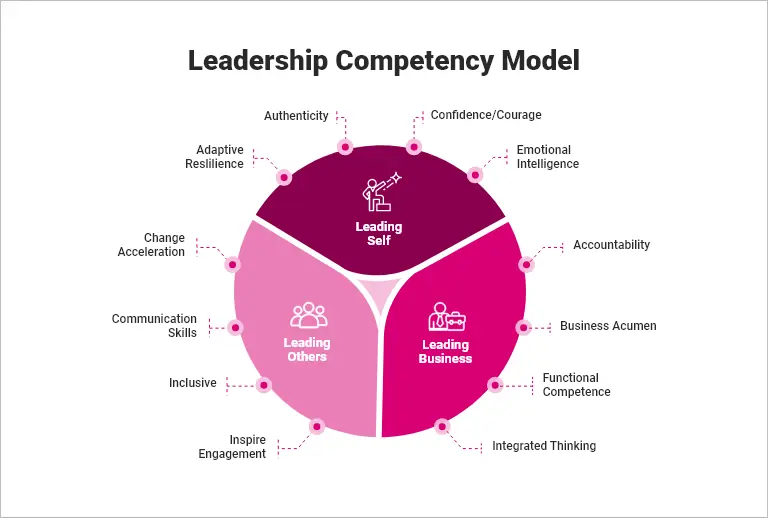The challenge for early-stage leaders lies in understanding the evolving expectations of their teams, which have expanded beyond mere task management. As organizations increasingly prioritize employee well-being and values alignment, leaders must fulfill diverse roles, including mentorship, coaching, and fostering psychological safety. This shift demands a broader perspective on leadership beyond driving productivity, presenting new challenges for first-time leaders in balancing these multifaceted responsibilities while delivering tangible results.
Want to know what it takes to be a great leader, especially if it’s your first time? We hosted a webinar titled ‘Leadership Launchpad: Essential Skills for First-Time Leaders’ with Dan Rust, Head of Global Leadership and Organizational Development, Infopro Learning, and this blog post covers all the key points.
Whether stepping into a leadership role or helping others, you’ll find tips on everything from communication and decision-making to emotional intelligence and team motivation.
Emerging Leaders Survey
Infopro Learning collaborated with Frontline Learning to survey emerging leaders and surveyed over 5,000 emerging leaders and over 3,000 direct reports of emerging leaders. These surveys involved self-assessments of capabilities and anecdotal feedback from emerging leaders about their experiences in their first significant leadership roles.
We asked them what they wished they had known and to assess themselves based on various capabilities aligned with our leadership competency model, tailored for first-time leaders. Additionally, we asked direct reports about their perceptions and suggestions for improvement regarding emerging leaders.

Significant discrepancies emerged in the following three areas:
- Communication skills.
- Ability to inspire engagement.
- Authenticity or perception of authenticity.

Interestingly, these were the areas with the most noticeable gaps between self-perception and direct reports’ perceptions. Regarding communication challenges, it’s intriguing that some leaders believed they effectively communicated when direct reports scored them lower. This highlights the complexity of communication effectiveness, which isn’t solely determined by frequency or volume. Sometimes, less communication can be more impactful.
Survey results from direct reports, particularly when confidentiality is assured, reveal a stark reality regarding communication gaps. This data has led us to develop a 10-week “Emerging Leader” program consisting of two-hour modules per week. The program addresses various leadership topics curated from existing comprehensive courses, providing emerging leaders with foundational knowledge in areas like emotional intelligence. This serves as a springboard for their continued leadership development journey.
The Imposter Syndrome in Leadership: Overcoming Self-Doubt and Building Trust
Many first-time leaders who were previously outstanding individual contributors may experience doubts upon stepping into a leadership role. They may wonder if they are truly suited for the position, often feeling like they might be perceived as “empty suits” by others. Conversely, those around them might also harbor doubts until they witness tangible evidence of competence.
This change in perspective mirrors a larger global shift that has emerged in recent years. Previously, individuals might have been granted trust and confidence automatically upon assuming a leadership role. However, there’s a prevailing sense of skepticism among direct reports and colleagues. Trust must be earned, and leaders must demonstrate their competence, experience, and wisdom from the outset.
This change in dynamics poses significant challenges for new and early-stage leaders. Unlike before, they cannot rely on inheriting trust but must actively cultivate it. While there are exceptions and variations to this trend, first-time leaders need to understand that trust and confidence are not given but earned.
Regardless of the industry or background, the principle remains the same in white-collar or blue-collar settings: Leaders must work to fill the metaphorical suit of leadership, proving their worth and earning the trust of those they lead.
The Leadership Microscope: Unveiling the Scrutiny of Early Leadership
Early-stage leaders often face a “leadership microscope” where their actions and words are scrutinized more closely. This can feel unfair, but it’s a reality of leadership. Some leaders even enjoy this attention, creating a sense of importance. However, there are downsides, such as people being less honest and more likely to flatter the leader.
This phenomenon isn’t limited to new leaders; it’s also common among senior executives, where even questionable ideas might be praised excessively. As a new leader, it’s crucial to be aware of this dynamic, as it can hinder open communication and create a false sense of reality. It’s simply human nature for people to react differently to someone with authority over them.
The Theatrics of Leadership: The Importance of Presence
Leadership always involves a degree of influence over others. This can make people cautious about their words and actions around leaders. Leaders should recognize that they are always on stage, and their energy, enthusiasm, and demeanor impact their team. This doesn’t mean being excessively cheerful or ignoring problems, but it does require self-awareness and intentional choices.
Leaders should pay attention to their appearance, language, and interactions with others. This heightened awareness is essential because leadership is, to some extent, a performance, and leaders are always under scrutiny.
Authentic Leadership: Balancing Vulnerability and Professionalism
Authenticity is important for leaders, and being genuine with your team is essential. Even when things are not going well, leaders should consider the needs of their team and adjust their approach accordingly. Be mindful of your emotions and how they may impact your interactions with others, as negativity can harm the work environment. You don’t have to be perfect, but it’s crucial to recognize when you’ve done something wrong and make amends for it.
Navigating Gravitas as a First-Time Leader
First-time leaders often struggle with establishing gravitas, especially when they’re young and managing people with more experience. Gravitas refers to having a sense of substance and authority. This can be difficult to achieve without seeming fake. One strategy is to recognize obstacles and setbacks while actively seeking constructive solutions. This demonstrates honesty and leadership, a balance that can help young leaders build credibility.
New leaders often fall into common pitfalls that can weaken their leadership and diminish their impact.
- Lack of Expertise: New leaders should actively gain knowledge in their assigned area to build credibility with their team.
- Imbalance of Confidence: Striking the right balance between humility and confidence is crucial. Being overly humble can make a leader seem unsure while being overly confident can come across as arrogant.
- Inconsistency: Leaders should strive to be authentic and consistent in their interactions with everyone, regardless of their position.
- Avoiding Responsibility: Leaders must acknowledge and embrace responsibility for their team’s positive and negative outcomes.
- Lack of Purpose: Leaders should reflect on their reasons for leading and align their actions with their core values.
- Ineffective Feedback: Providing clear, specific, and impactful feedback is crucial for team development.
- Resistance to Feedback: Leaders should be open to feedback from others, even if it’s difficult to hear, as it can provide valuable insights.
The webinar session further delved into strategies for becoming an exceptional leader from the very beginning.
Catch the replay of the webinar “Leadership Launchpad: Essential Skills for First-Time Leaders” to gain practical insights and take your first step toward becoming a transformative leader in your organization!





